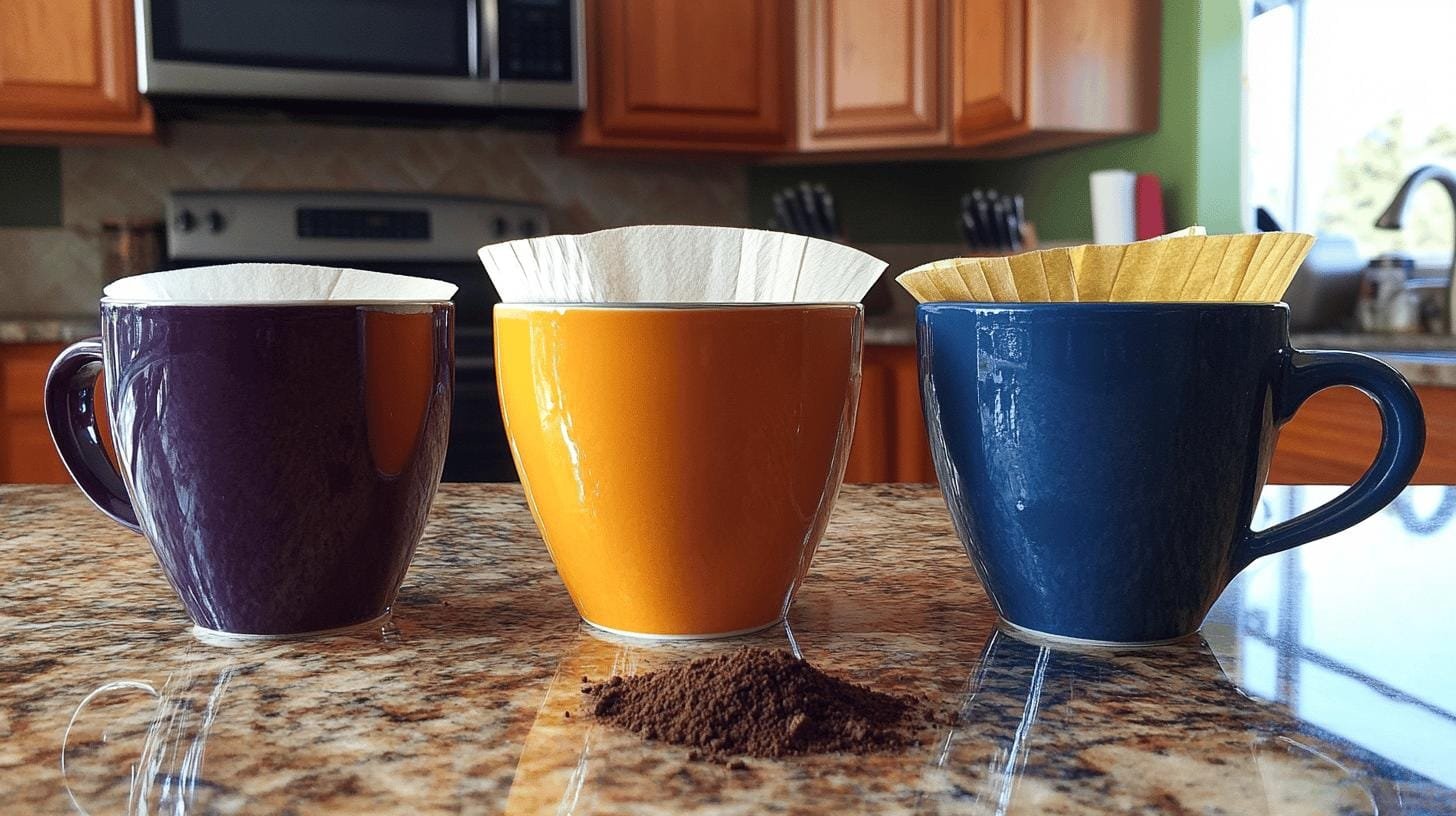
6 Ways Specialty Coffee Brands Build Loyalty and Stand Out
Discover how top specialty coffee brands create lasting loyalty through storytelling, sourcing, and community connection. Real tips from 6 industry experts.

Can the oils in your morning coffee really affect your cholesterol levels? It’s a question stirring the coffee world, as research reveals that certain compounds found in coffee oils can indeed raise cholesterol. While these compounds, including cafestol and kahweol, pose a cholesterol-concern, they also offer surprising health benefits.
This article delves into the complex relationship between coffee oils and cholesterol levels, exploring how different brewing methods and coffee preparations influence this balance. Understanding the impact of these factors is essential for coffee lovers aiming to maintain healthy cholesterol levels while enjoying their favorite brew.
Coffee is often praised for its health perks, like protecting against cognitive diseases and liver issues. But, some worry about how coffee affects cholesterol, especially with unfiltered brewing. These methods let oils, with compounds like cafestol and kahweol, stay in the brew, which might raise cholesterol levels.
Here are five key compounds in coffee that affect cholesterol:
Scientific research gives mixed views on coffee’s impact on cholesterol. Some studies highlight coffee oils’ potential to raise cholesterol. Others focus on coffee’s wider health benefits, like reducing cardiovascular disease risk and protecting cognitive function due to caffeine.
The difference often depends on the brewing method, with filtered coffee generally posing less risk to cholesterol levels. Thus, coffee oils’ relationship with cholesterol is complex, involving both preparation method and personal health profile.

Coffee brewing methods greatly affect cholesterol levels due to cafestol and kahweol in coffee oils. These diterpenes in unfiltered coffee can raise cholesterol, making brewing choices important for those mindful of their health. Understanding these methods helps manage potential cholesterol increases.
When picking a coffee brewing method for cholesterol management, consider health priorities. Choosing paper-filtered coffee can cut down cholesterol-raising compounds while still providing rich flavors. For those not at risk or interested in coffee’s full health benefits, like its anti-inflammatory properties, steel-filtered or unfiltered coffee might be more tempting, despite potential cholesterol concerns.
Cafestol and kahweol are key diterpenes in coffee oils known for their potential to raise cholesterol. These fat-soluble compounds are major contributors to higher LDL cholesterol levels, especially in unfiltered coffee.
Despite this, they also offer benefits, such as anti-inflammatory properties, highlighting their complex role in coffee.
| Compound | Cholesterol Effect | Health Benefit |
| Cafestol | Raises LDL cholesterol levels | Anti inflammatory effects |
| Kahweol | Increases cholesterol levels | Possible antioxidant roles |
| Diterpenes | Potent cholesterol-raising | Fat-soluble health benefits |
Research continues to explore cafestol and kahweol’s dual roles in health. Scientists look at how these compounds elevate cholesterol while possibly offering protection against inflammation and oxidative stress. Understanding the balance is crucial for making informed choices about coffee, especially for those concerned about cholesterol.

Keto coffee mixes coffee with saturated fats like butter and coconut oil, gaining popularity in low-carb diets. This blend is believed to increase energy and mental clarity but raises questions about its effect on cholesterol and heart health. Saturated fats can affect heart disease markers, like LDL cholesterol, a traditional risk factor.
Balancing the risks and benefits of adding oil to coffee means understanding its health implications. Individuals should weigh their health goals and seek advice from healthcare professionals for informed choices about adding oil to their coffee.
Moderation in coffee intake is key to managing cholesterol, especially due to cafestol and kahweol in coffee oils. These compounds can raise cholesterol levels when overly consumed, mainly from unfiltered coffee. Mindful consumption involves being aware of both how much and how you prepare your coffee. Opting for filtered coffee helps lessen these oils’ cholesterol-raising effects while still enjoying coffee’s health benefits.
Consulting healthcare professionals is wise, especially for those with cholesterol concerns or on higher-fat diets like keto. They can evaluate health markers like LDL particle size and provide personalized coffee consumption advice. Making informed choices based on individual health and expert guidance can blend coffee enjoyment with cholesterol management, promoting heart health.
Navigating the complexities of oil in coffee and cholesterol involves understanding both the benefits and potential drawbacks. The presence of compounds like cafestol and kahweol in coffee oils has been linked to increased cholesterol levels, particularly in unfiltered brews. Conversely, filtered methods can mitigate these effects.
Consideration of preparation techniques, such as opting for paper-filtered coffee, allows one to enjoy coffee’s benefits while minimizing cholesterol impact. Ongoing research provides insights into balancing coffee’s health advantages against its cholesterol risks. Embracing moderation and informed choices ensures a cholesterol-friendly coffee experience.
Coffee prepared with paper filters is good for cholesterol, as they remove most oils that can raise levels. Unfiltered coffee allows these oils to remain, potentially increasing cholesterol.
Coffee raises cholesterol because of oils like cafestol and kahweol in unfiltered coffee, which can elevate cholesterol levels. These compounds have cholesterol-raising properties.
Put non-fat or skim milk in your coffee if you have high cholesterol. Avoid adding saturated fats like butter or coconut oil, which may elevate cholesterol levels.
Oils in coffee, such as cafestol and kahweol, offer health benefits yet can raise cholesterol levels. Use filtered coffee to minimize their cholesterol impact while enjoying potential benefits.
Cafestol and kahweol are diterpenes in coffee that can raise cholesterol levels but also provide beneficial health effects due to their fat-soluble nature.

Discover how top specialty coffee brands create lasting loyalty through storytelling, sourcing, and community connection. Real tips from 6 industry experts.

Discover the ultimate showdown between two beloved coffee brewing methods: the French press and Chemex. Explore how each technique caters to distinct palates, with the French press delivering bold flavors and the Chemex presenting a bright, clean taste.

Unlock the secrets to brewing the perfect cup of coffee with our comprehensive guide on using a coffee scale. Discover how precise measurements enhance flavor and consistency while eliminating bitterness.

Discover how water temperature plays a vital role in brewing the perfect cup of coffee. This article delves into the ideal temperature range of 195°F to 205°F for optimal flavor extraction, enhancing the enjoyment of high-quality beans.

Discover the world of curated specialty coffee bundles, perfect for enthusiasts seeking quality and craftsmanship. This article explores the benefits of ethically sourced, small-batch beans from brands like Equipoise Coffee, offering diverse flavor profiles that elevate your brewing experience.

Discover the art of manual brewing to elevate your coffee experience! This article explores various techniques like pour-over, French press, and AeroPress, revealing how they enhance flavor and your connection to every cup.

Discover how to balance productivity and rest with the perfect cup of coffee. This article explores the art of brewing high-quality coffee to enhance your work routine while promoting mindful breaks.

Transform your morning coffee ritual into a mindful experience! This article explores the importance of slowing down to appreciate high-quality beans, ethical sourcing, and small-batch roasting.

Discover the world of specialty grade coffee and what sets it apart for true enthusiasts. This article delves into the strict standards, exceptional flavors, and unique origins that define high-quality brews.